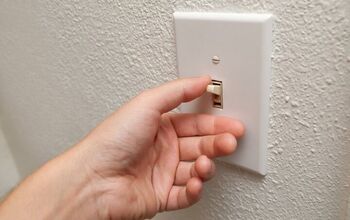Seven Tips For Living In An HOA Community

Moving into a neighborhood with a homeowners association (HOA) takes a lot of getting used to. After all, HOAs have rules that community members must follow to avoid fines. That’s why we put together seven important tips for living in an HOA community.
The first step to living in an HOA community is that you must familiarize yourself with the rules and bylaws. Keep up with new rules, amendments, and due dates for your community dues to avoid extra fees. Nurture good relationships and get involved with the HOA board if you want to contribute to positive changes in the community.
Living in an HOA doesn’t have to be hard if you simply follow the rules. Read more as we explore how to thrive in an HOA community via a few simple tips.
How To Avoid Problems In An HOA Community
Compliance is key to thriving within a homeowners association (HOA). However, living in an HOA comes with many nuances that can be hard to get used to at first. Luckily, you can easily thrive in your HOA neighborhood if you consider a few simple things, such as:
1. Learn The Rules
First and foremost, you must familiarize yourself with the rules your HOA enforces. HOAs often impose rules that cover many aspects of your home and behavior in the neighborhood. For example, most HOAs enforce policies regarding pets, lawn maintenance, landscaping, and noise.
The regulations also typically specify details about community amenities, like shared areas, if applicable. It’s important to learn and memorize the rules to avoid problems. Violating rules can not only land you in trouble with the board but also with your neighbors.
You may have neighbors who sit on the HOA board and can and will report your violations. There may be a grace period when you first move into the neighborhood. However, that will only last for a while, so try to learn the rules as quickly as possible.
2. Be Prompt
Paying monthly fees is part of living in an HOA, and you cannot avoid this cost. HOAs collect member fees to help cover the cost of maintaining common areas and paying HOA staff, if applicable. Membership fees vary between organizations, and they can cost as little as $100 per month.
The board expects HOA members to pay fees on time. You can face extra fees if you pay your fees late in some cases. They also expect prompt payments and the HOA must fine you for violations, such as improper parking and noise violations.
You can make your life much more complicated than it needs to be if you fall behind on monthly dues and fines. Paying dues can be quite annoying, but that’s unfortunately part of living in an HOA neighborhood.
3. Speak Up When Appropriate
You may be familiar with HOA horror stories about community members who constantly stir up trouble. This often comes from people voicing their opinions at inappropriate times or simply finding problems with everyone. For example, some HOA members often “snitch” on other members and stir up controversy outside of meetings.
Luckily, the average HOA provides plenty of time for open communication among members. This typically takes place during a meeting when they open the floor up for questions and comments. Ideally, you should take this opportunity to voice your biggest concerns.
Otherwise, you can submit your comments and concerns via email or letter as needed. Many HOAs accept questions, comments, and violation reports at any time via a designated forum or email address. The last thing you want to do is draw unnecessary attention and make enemies with your neighbors.
4. Nurture Good Relationships
Thriving within an organization is much easier if you have good relationships with the people within it. That doesn’t mean everyone has to be your best friend, but it’s a great idea to familiarize yourself with many people. This makes it easier to voice your opinion and ensure people take it seriously.
It also comes in handy in case you need help around your yard and home. For example, you may plan a vacation and worry about taking care of your plants and or pets. The added security of having neighbors to help you keep tabs on your house while you’re gone is comforting.
This can also help you feel safer at home knowing your neighbors have eyes on your house. Great neighbors know to look out for strange changes that seem out of place. They can also help ensure your packages don’t get stolen.
5. Get As Involved As You Want
You aren’t required to join the board when you move into an HOA community. Nobody can force you to get involved in any decisions, discourse, or gossip. It’s up to you to decide how involved you want to get, as that affects you more than anyone else.
However, it’s worth weighing the pros and cons of getting involved in the HOA. For example, joining the board lets you have a voice in what goes on in the community. Board members vote on decisions that affect the bylaws, costs, and overall HOA operations.
It’s rewarding to see the things you voted on get implemented. However, the downside is that it can be stressful, especially if you already have a busy life at work and home. It’s worth trying if you’re curious, as you can opt-out if it’s not for you.
6. Stay Up To Date
Living in an HOA community is different than living in a standard neighborhood in many ways. The board frequently votes and makes changes that can affect everyone in the community. These changes are typically for the better, but it’s important to observe them.
Stay up to date on what goes on in your community as much as possible. That way, you can avoid fines and penalties for things you didn’t realize were recently banned by the HOA. Of course, that is an extreme example, but it highlights the importance of staying privy to changes.
HOAs often offer online resident portals to find updates and even recaps of recent meetings. If not, they may mail or email updates to residents, and you must pay attention to learn pertinent information.
7. Make Changes As Needed
Everyone makes mistakes, and it’s easy to accidentally overlook HOA rules, especially early on. However, it’s up to you to adjust to changes and correct mistakes as soon as possible. For example, it’s important to alter your parking setup and have your guests park in the driveway if they park on the street.
HOA board members aren’t out to get anyone, but they must maintain order. You can make their lives easier if you quickly fix problems as they pop up. That way, you won’t have to deal with them continually telling you to fix the problem.
Most mistakes are chalked up to ignorance. as it’s hard to keep up with all the rules at first. Nobody can blame you for that, so don’t feel attacked if you receive notices at first.
How Much Can An HOA Fine You?
HOAs typically fine community members between $25 and $50 per violation. In some cases, an HOA can fine you hundreds of dollars, but that’s not common. HOAs reserve steep fines for serious violations, especially if you repeatedly violate the same rules.
Failure to pay fines on time can result in extra penalties and fees. That’s why promptly paying fines is so important, as doing so can save money. However, an HOA should never fine members exorbitant fees, especially for minor offenses.
Consult a lawyer if you receive an unreasonable fine from an HOA without a good explanation. No organization is perfect, and it could be a case of one bad apple ruining the bunch.
Summing It Up
Carefully read and follow the HOA rules to ensure you don’t upset the board, make enemies, and receive fines. Observe the chain of command and save your comments for the appropriate time at board meetings to ensure you don’t draw negative attention. Pay your fees on time and nurture strong relationships within the HOA community.
Related Guides:

Nick Durante is a professional writer with a primary focus on home improvement. When he is not writing about home improvement or taking on projects around the house, he likes to read and create art. He is always looking towards the newest trends in home improvement.
More by Nick Durante



























